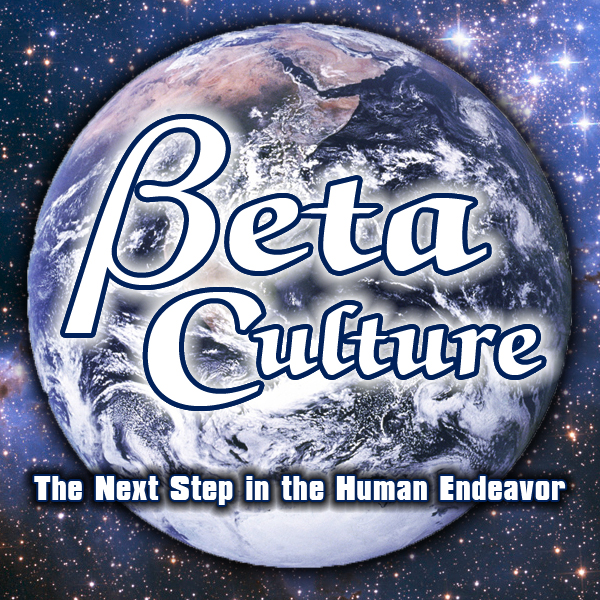 The subject of free will has cropped up in my life again. I think about it every so often, and there are some things that always come to mind when I do. So:
The subject of free will has cropped up in my life again. I think about it every so often, and there are some things that always come to mind when I do. So:
If you define free will as “the ability to flout or ignore physical laws,” the discussion ends almost before it starts. You can’t defy natural laws. The weird thing is, MOST of the people commenting or writing on the subject speak exclusively in this vein, concluding rightly there is no such thing as free will. Either there’s some sort of goddy magic that allows it to happen – which we already know is not the case – or you don’t have free will. You’re a meat machine that obeys meat machine laws.
But that’s a stupid definition. For the question to have any meaning at all, the REAL discussion has to take place on a level that gives full recognition to the underlying physics, but also understands that amazing things become possible when physical laws are expressed in biological systems.
Yes, yes, yes, all of what we are and what we do flows out of our childhood experiences, what we ate that morning, how much sleep we got, whether or not we suffer brain damage from an accident earlier in life, what someone said to us that morning, the fact that we are humans rather than sitatungas … but even taking those factors into account, the complexity of the brain sometimes manages to produce amazing, unpredictable results.
Additionally, there’s an element of farce to any discussion that concludes free will is impossible, in that the person arguing against free will is basically saying he has no choice but to be saying exactly what he’s saying. Which sort of negates anything he says, right? Why even bother listening to a machine?
The fact is, you might say “Oh, this is all due to physics and earlier events,” and be right. But it’s also a fact that we humans can’t even begin to tease out the full array of those factors. No matter how much we know, there is no way to reliably predict future actions or thoughts. We can’t even look back after a thought or action has been expressed and reliably identify the factors that caused it. (Note that every mass murder-suicide is followed by society-wide bafflement.)
We can create art, make decisions, take actions, express love, change our minds … so much more. Not despite the wiring of our human brains, but DUE TO. Yes, in most ways we are “wired” for things, but one of the things we are wired for is uniquely creative behavior. At some level, this is free will.
Another thing: It seems to me that the less experience and knowledge you have, the more you unknowingly act based on immediate social influences. But the more experience and knowledge, the greater the possibility that you’ll be able to produce more complex, less predictable, more original thoughts and behaviors.
For instance, I grew up with smokers. Every adult I knew smoked cigarettes. I also grew up with rodeo cowboys, every single one of which drove a pickup truck. You’d think I’d be a pickup-truck-driving smoker. But I never smoked, and my first vehicle was a VW Beetle. After a lot of thought, and knowing nobody else who owned one, I CHOSE the Beetle. I knew the choice would make me unpopular, but I also knew it was dependable, durable and cheap to operate. I exhibited a creatively novel approach to the question of what sort of vehicle I was going to get. To me, that was an expression of the only sort of “free will” that makes any sense to discuss.
In every examination of the subject of free will, here’s a thing I believe: Free will is possible, but it’s VERY hard work, and so most of us DON’T have much of it. We really are blind mechanical expressions of the social forces around us.
We get the same stupid neck tattoos and buy the same stupid brand of cigarettes as the people around us. To make ourselves feel we’re not complete robots, maybe we crow about the UNIQUE, INDIVIDUAL nature of our stupid neck tattoos, and the fully conscious individual choice we made to take up smoking.
But in reality most of us think few to zero new thoughts, we break away from the home crowd reluctantly or not at all, we enjoy the same entertainments and endeavors and employments as those around us. Few of us create art, or found totally novel businesses, or hare off to parts unknown to see the never-before seen. For most of us, the older we get, the worse it gets. We become products rather than individuals.
Finally, humans in groups display statistically-significant cattle-like behaviors. Those behaviors can be predicted and profited from, and that is exactly what governments and industries do. They deliberately exert powerful social forces – advertising, manipulative lies, engineered fads, active social engineering, laws, even articles by prominent thinkers telling you you have no free will – to keep us within the bounds of predictability and profitability. So not only do we face our own laziness or lack of ambition, we face energetic, real discouragement against believing we as individuals have some sort of outside-the-lines creative or productive potential.
Conclusion: Free will exists. It’s desirable, but also uncomfortable because it’s damned hard work. It has active enemies. Most people don’t have much of it. The way to have more of it is to constantly listen, read, learn and think.



